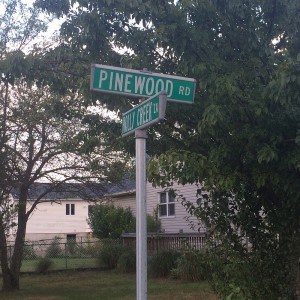
TOMS RIVER – A new version of an ordinance that would place limits on home-sharing services such as AirBnb makes the distinction between rentals on the mainland and the barrier island sections of Toms River.
Assistant Township Attorney Anthony Merlino, who crafted the ordinance after hearing from residents and AirBnb, said rentals would be allowed on the mainland for a minimum of 30 days, while the barrier island could have rentals as short as three days. That speaks to feedback received leading up to the original ordinance, which was scrapped late 2016.
The move to regulate these short-term rentals came after residents in a Silverton neighborhood complained an AirBnB host was essentially operating a “flophouse” or boarding home on a quiet residential block. The residents wanted relief from these types of single, overnight rentals.
The new ordinance uses that language as well, in defining the problem not with all renters and not with hotels or bed and breakfasts but as “transient guests” staying in “an increasing number of single-family homes and other dwellings located in residential zones that have been advertised” on various websites, according to the ordinance.
The barrier island is defined as the areas of Toms River that are “geographically between the Barnegat Bay and the Atlantic Ocean,” which Merlino said includes the Pelican Island section of Toms River as well as the barrier island sections such as Ortley Beach and the northern beaches.
Under the ordinance, short-term rentals under 30 days of a home or section of a home are prohibited. Sites such as AirBnb allow hosts to rent out a whole house, a room, or share a room.
However, between April 15 and September 15, the rentals as short as three days are allowed on the barrier island.

The ordinance also says for a home with multiple bedrooms, one room may be rented, but only under certain conditions, such as the home being owner-occupied year round.
During the crafting of the ordinance, an additional concern was made out of the North Dover neighborhoods, with residents there complaining that home owners were renting their pools or other amenities on their property for special events or regular use with a fee.
One resident complained of children being bused in from out of town in multiple points during the summer to use a home’s pool, seemingly turning a residential backyard into a pool to rent.
Merlino said the ordinance also outlaws that practice, strictly forbidding commercial rentals of a dwelling, as well as “the lease or rental, for any purpose, of any amenity, feature, accessory or appurtenance to or associated with a dwelling.”
The previously proposed ordinance that was scrapped had a six-day minimum for the entire town, Merlino said, and there was no distinction for the barrier island and its summer season.
Week-long or month-long rentals are common on the barrier island, but many of those rentals are still brokered by real estate agents.
“We struck a balance between both ends of the community because we want more permanence in the residential areas and then over on the barrier island transient rentals are normal,” Merlino said. “We wanted to be able to preserve that because that’s a big part of the economy over there.”
AirBnB disagrees. Peter Schottenfels, Airbnb’s press secretary for New York and New England, responded for this article that the draft ordinance is an attack on AirBnB hosts.
 “This draft ordinance doesn’t represent a middle ground ‑‑ it represents an attack on scores of Airbnb hosts in Toms River who rely on sharing their own homes to age in place, save for retirement, and pay the bills,” Schottenfels said in the statement. “The draft ordinance threatens to end this new source of economic opportunity for residents and eliminate hundreds of thousands of dollars spent at local shops and restaurants. The Township Council should reject this approach and follow the lead of other municipalities by embracing responsible home sharing.”
“This draft ordinance doesn’t represent a middle ground ‑‑ it represents an attack on scores of Airbnb hosts in Toms River who rely on sharing their own homes to age in place, save for retirement, and pay the bills,” Schottenfels said in the statement. “The draft ordinance threatens to end this new source of economic opportunity for residents and eliminate hundreds of thousands of dollars spent at local shops and restaurants. The Township Council should reject this approach and follow the lead of other municipalities by embracing responsible home sharing.”
Previously, barrier island residents said the impact would definitely be economic if it didn’t make provisions to allow the existing rental season norms to continue.
Merlino said the reports of mainland short-term rentals were less about creating a tourism economy in their neighborhoods and more about “people who wanted to make a quick buck out of renting their houses. It’s a profit motive.”
In the case of the mainland, this is year-round tenants or homeowners and their families. “These neighborhoods lend themselves to permanence. They didn’t sign up for a boarding house to open up down their street,” Merlino said. “That’s essentially what we’re trying to regulate here.”
The public hearing and final vote of the ordinance is scheduled for the 6 p.m. town hall meeting on March 14.






